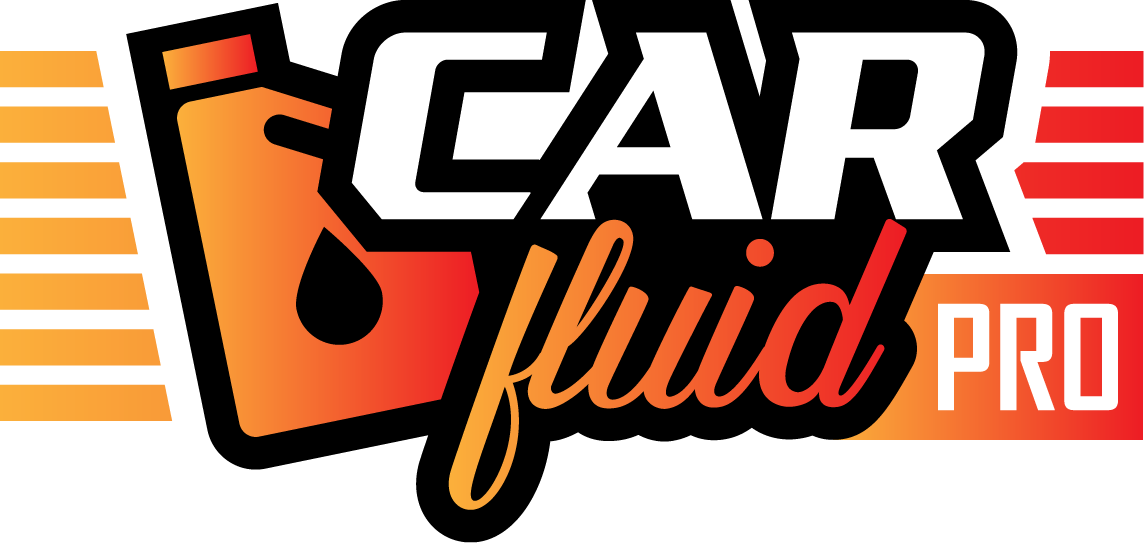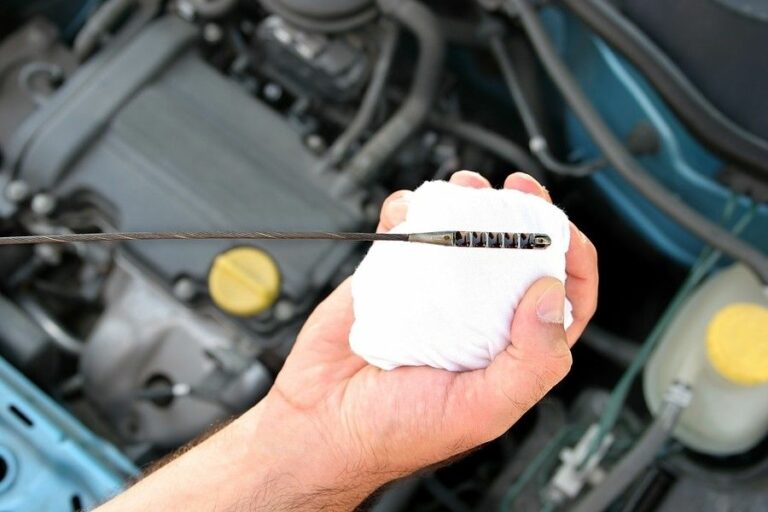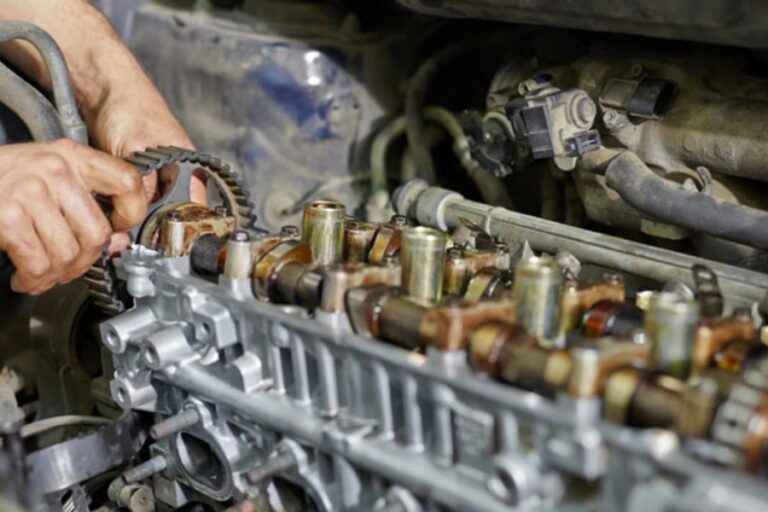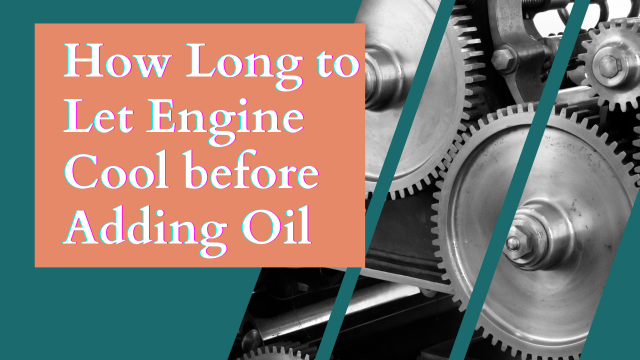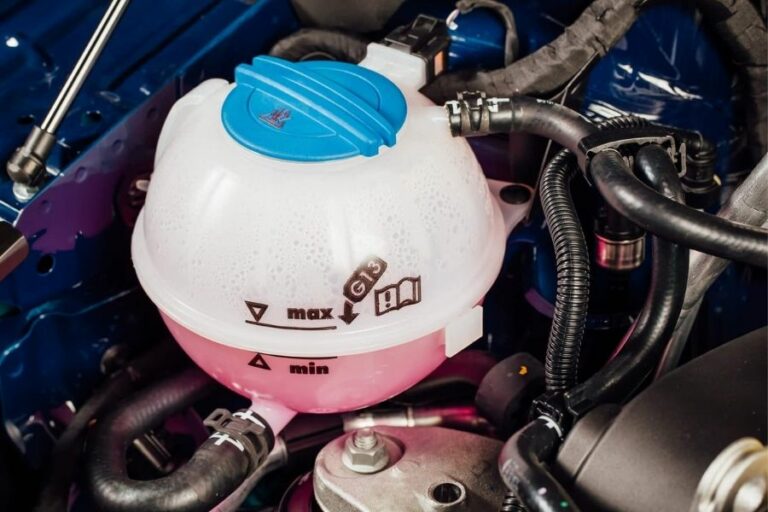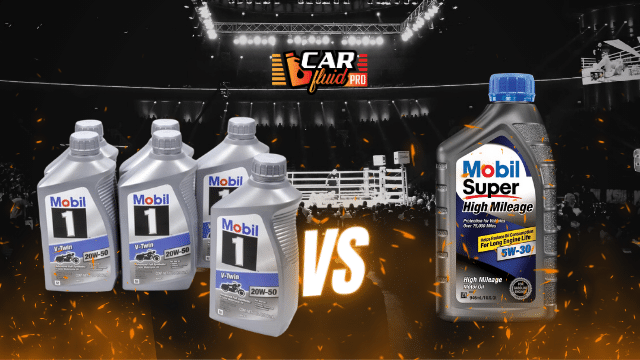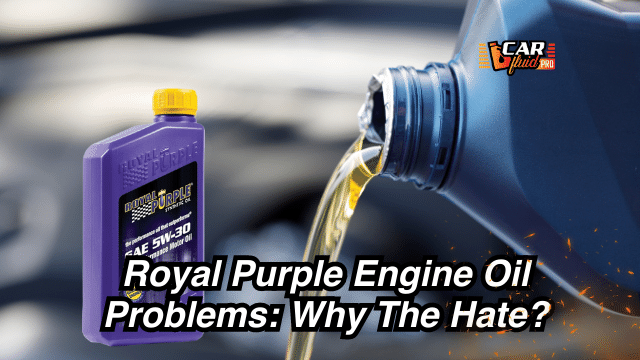What Causes High Oil Pressure After Oil Change?
Let me guess, your car’s oil pressure suddenly spikes after an oil change, huh? Well, you’re not the only one. Many car owners experience high oil pressure after an oil change, and believe me, it can be a serious cause for concern.
But what causes high oil pressure after oil change?
The most common causes are using old or incorrect types of oil. However, using dirty oil filters or blocked passages can also cause high oil pressure.
In this article, I’ll describe the probable causes behind high oil pressure and offer solutions. Then I’ll take you through the effects of high oil pressure and show you how to prevent it as well. Let’s go!
6 Causes of High Oil Pressure After Oil Change With Solutions
Having high oil pressure after an oil change has become quite common these days. However, it is not a good sign. High oil pressure will surely affect the engine’s components and reduce its efficiency.
So check out the probable reasons and their solutions.
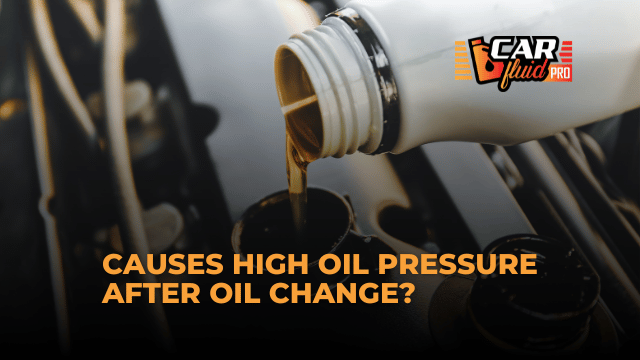
1. Using Wrong Type of Oil
This is undoubtedly the biggest reason behind getting high oil pressure right after you change your oil. You should always match up one thing before buying the oil.
Grade & Viscosity
And each vehicle has a specific recommended oil for it. When you do not use it, you are bound to face various problems. For example, one of my friends was using thicker oil, and he was getting high oil pressure every time.
Another thing is that old and dirty oil loses its efficiency over time. They cannot travel properly and get the best outcome. so you shouldn’t use them either.
Each automobile manufacturer specifies the type and weight of oil that is best suited to their models.If you use the wrong type of oil, it can cause the oil pressure to increase, which will lead to engine damage.
Solution: It’s important to check the owner’s manual before you set your eyes on a specific oil. You need to find the perfect brand, grade, and viscosity. That’s why you should check the recommendation and make sure you are using the correct type of oil.
2. Wrong Oil Filter
First and foremost, oil filters are just as important as oils.But when you use the wrong one while changing, it can cause high pressure as well.
When your oil filter is clogged with debris and contaminants, it can restrict the flow of oil to the engine.
A lot of resistance gets built up around the engine of the car.
A bad sign, huh?
This can cause the pressure to build up and lead to severe engine damage.
Solution: My suggestion would be to replace the oil filter at every two oil changes to ensure proper oil flow and pressure.
Thinking about the cost? Well, oil filters can cost you around $9 to $16 on average.
3. Overfilling the Engine with oil
Many people do not notice this, but overfilling the engine with a lot of oil can be the reason why your vehicle is experiencing high pressure.
A lot of oil pressure can undoubtedly occur if too much oil is added during an oil change.
The excess oil can cause the oil to foam, which can lead to increased pressure.
Solution: I have a simple solution for this one. To avoid overfilling, just follow the manufacturer’s recommendations for the correct amount of oil to use.
4. A faulty oil pressure sensor
A faulty oil pressure sensor is another possible cause of high oil pressure after an oil change.
If your sensor is not functioning correctly, it can send a false signal to the oil pressure gauge. Then it can indicate that the oil pressure is too high.
This can cause unnecessary worry for you. You might not even be able to properly figure out what’s wrong.
Solution: Have your sensor checked by a mechanic. You might need to replace or repair it.
5. Clogged or blocked oil passages
This is another common reason. You can get the best oil, change it properly, and do everything right. But if there are blocked passages, then it will definitely cause high oil pressure.
Over time, dirt and debris can accumulate in the oil passages, causing blockages that can increase the pressure. What will happen then?
Your oil won’t be able to pass through the crankshaft properly. It will fail to provide proper lubrication. What to do? Check out the solution below.
Solution: Try to perform regular oil changes and maintenance. It will help you prevent clogged oil passages. Also, if you find blocked passages, try to clean and unclog them. You can see and try some DIY methods.
6. Problems with the Pressure Relief Valve
The pressure relief valve is an important component of the oil system that helps regulate oil pressure.
If the valve is faulty, it can cause your favorite vehicle to have high oil pressure after an oil change.
The PRV is designed to open when the pressure gets too high, allowing some of the oil to flow back into the oil pan.If the valve is stuck or not functioning correctly, the pressure will build up as the extra oil doesn’t have anywhere else to go.
Solution: Here I have shared an in depth way of How To Unstick Oil Pressure Relief Valve in your car.
Check this out and I believe you will be able to pull it off. But remember one more thing, if you find it hard, you can always take your car to a mechanic.
What are the Effects of High Oil Pressure?
High oil pressure can have serious consequences for your engine.
If left unchecked, hamper the components and if you’re unlucky, it might even cause a total engine failure. Here are some of the most common effects of high oil pressure:
1. Engine Damage
One of the most serious consequences of high oil pressure is engine damage. When the pressure is too high, it can create air pockets in the oil passages.
This can lead to reduced oil flow and lubrication, causing increased wear and tear on the engine. Are you worried already?
Well, over time, this can cause damage to critical engine components such as the bearings, piston rings, and valve train.
2. Leaks and Seals
High oil pressure can also cause leaks and damage to seals of your car. The excess pressure can force oil past the seals and gaskets, causing leaks and potentially damaging other engine components.
Wait, that’s just not it. In extreme cases, the pressure can even cause the oil filter or oil pan to rupture, leading to a catastrophic loss of oil and engine failure.
3. Reduced Fuel Economy
This is what I hate the most about high pressure. It also affects the fuel economy.
When the pressure is too high, it causes more resistance in the engine, which can lead to reduced efficiency and increased fuel consumption.
4. Hardship While Driving
Another dangerous effect is facing hardship while driving your vehicle. I hope not, but hey, it can lead up to serious consequences.
High oil pressure makes it more difficult to drive your vehicle. When the pressure is too high, it creates more resistance in the engine, making it harder to accelerate and maintain speed.
This can make driving more strenuous and potentially dangerous, especially two kind of situations
- One where you need to quickly accelerate
- Another when you have to avoid an obstacle.
5. Engine is overheated
You will certainly face overheating issues as well.
When the pressure is too high, it can cause the oil to break down and lose its ability to lubricate the engine properly. This can cause increased friction and heat, leading to overheating and potential engine damage.
If you notice that your engine temperature is consistently high, it could be a sign of high oil pressure and should be inspected by a professional mechanic.
How to Prevent High Oil Pressure?
Now you already know that high oil pressure can cause you so many problems. You cannot expect longevity from your vehicle if there’s high oil pressure every now and then.
Here’s how you can prevent high oil pressure:
1. Choose the Right Oil
This is the solution for half of your oil problems.
The type of oil you use in your vehicle can have a significant impact on oil pressure. So use the oil that is recommended by your manufacturer and
2. Check the Oil Level
It’s important to regularly check your vehicle’s oil level to ensure that it’s at the right level.
If the oil level is too high or low, it can cause pressure in the system. So remember to check the oil level at least once a month, and top up as needed.
3. Use the Right Oil Filter
Remember when I said oil filters are as important as oils? Well, it is.
Using the right oil filter for your vehicle is important to ensure proper oil flow and pressure. It also helps to keep the engine completely clean.
If you are having trouble with the filter, you can always get it changed.
4. Regular Maintenance
No matter how much of a good shape your car is in right now, always remember to maintain it regularly.
It is key to preventing high oil pressure. It’s important to have your engine inspected by a professional mechanic on a regular basis to catch any issues early on.
This includes checking for leaks, inspecting the oil system, and ensuring that all components are functioning properly.
Frequently Asked Question
1. Can I drive with high oil pressure?
Answer: No, you should not drive with high oil pressure.
It’s not good to drive with high oil pressure, as it can cause increased wear and tear on the engine. And there’s even more, it can lead to potential damage and even engine failure.
2. How do I know if I have high oil pressure?
Answer: If you find these symptoms, then your vehicle might have high oil pressure:
- Abnormal engine noise
- Leakage problems
- Overheating issues
- Difficulty in driving
3. Can I fix high oil pressure myself?
Answer: I would personally not recommend you to do it all by yourself if you are not so familiar with the automotive world.
Attempting to fix high oil pressure yourself,can be dangerous and potentially cause further damage to your engine.
So It’s important to have your engine inspected and repaired by a professional mechanic.
4. What’s the ideal oil pressure?
Answer: It depends a lot on the type of your car. But on average, it can be from 25 to 65 PSI.
Final Thought
I hope you have a good idea about what causes high oil pressure after an oil change and how to solve it.
High oil pressure can be really dangerous and cause you a lot of trouble. That’s why you should change the oil properly, and if you run into problems, your car can always visit a mechanic.
Also, remember to perform regular maintenance.
